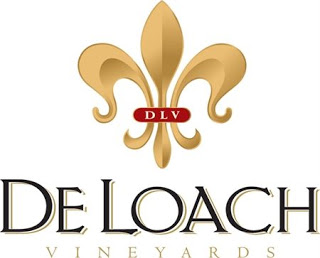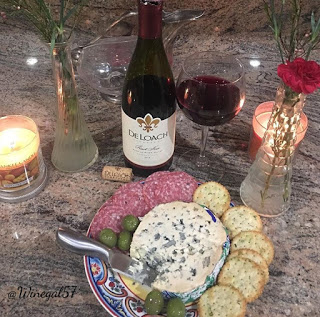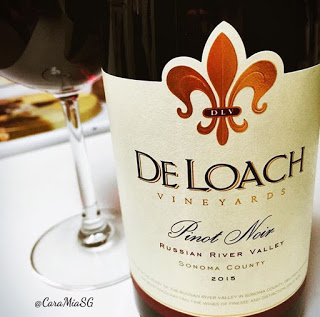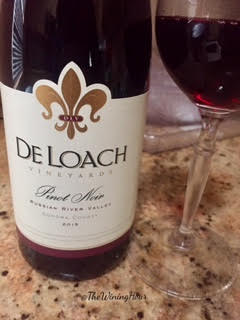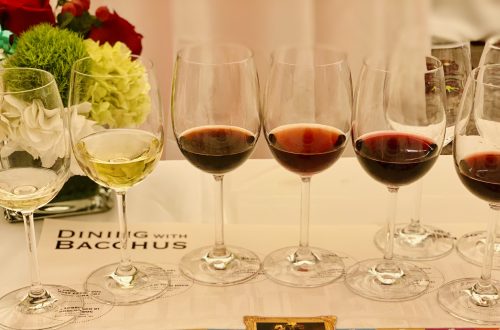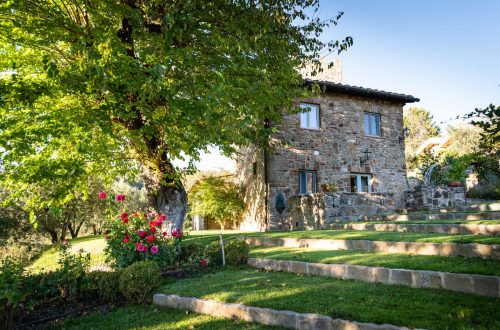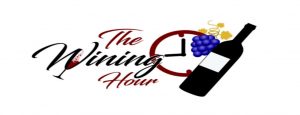Russian River Passion and Organic Farming at DeLoach Vineyards
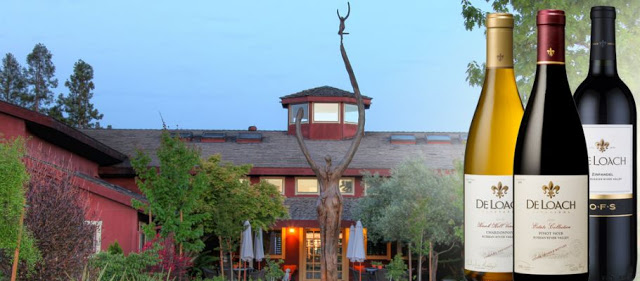
Located in the Russian River Valley of Sonoma County,
DeLoach Vineyards has been a leading producer of Pinot Noir, Chardonnay and Zinfandel. Deloach was acquired by the
Boisset Family Estates in 2003 under the guidance of Jean-Charles Boisset, who incorporated the Burgundian wine-making style and sustainable farming techniques. DeLoach was certified organic by the CCOF (California Certified Organic Farmers) in 2008 and granted biodynamic certification by Demeter in 2009. DeLoach Vineyards considers themselves stewards of the land, and “we take to heart the Native American proverb that “We do not inherit this land from our ancestors; we borrow it from our children.” In this regard, those at DeLoach Vineyards strives to “maintain and encourage biodiversity on the winery estate with chickens, a thriving bee hive, and a diverse vegetable and herb garden that includes the medicinal plants we use in the compost preparations such as yarrow, chamomile and dandelion.”
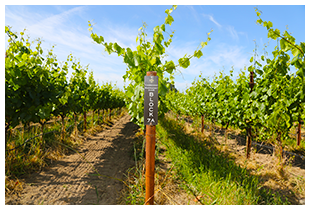 |
| Photo from DeLoach Vineyards |
DeLoach produces wines in 12 Vineyards: DeLoach Estate Vineyards, Durell Vineyard, Hawk Hill Vineyard, SwiceGood Vineyard, Van Der Kamp Vineyard, Heintz Vineyard, Maboroshi Vineyard, Riebli Valley Vineyard, Ritchie Vineyard, Rue Vineyard, Pennacchio Vineyard and Saitone Vineyard. DeLoach’s passion is Pinot Noir – and they use their Burgundian techniques to do it well. “In keeping with our Burgundian Heritage, we use French open-top wood fermentors for all of our Russian River Valley, O.F.S, and Vineyard Designate Pinot Noirs, as well as our old-vine Zinfandel. We also practice hand punch-downs, known as pigeage — another Burgundian winemaking tradition.” DeLoach employs open-top wood fermentors, as used in France, to highlight and truly express the Russian River Valley terroir. It was very interesting to learn about DeLoach’s French heritage and winemaking styles. The DeLoach surname itself is French for “from Loches,” a small village in the Loire Valley near Vouvray.
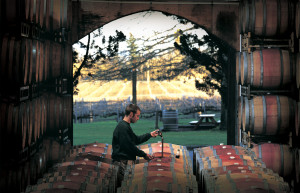 |
| Photo from DeLoach Vineyards |
DeLoach’s focus on biodynamic, organic, and sustainable winemaking practices led to crops being replanted and revitalized, and ultimately to DeLoach producing Wine Enthusiast magazine’s 2004 Wine of the Year (DeLoach Vineyards’ 30th Anniversary Cuvée Pinot Noir) and making Wine & Spirits‘ magazine Top 100 Winery list for the twelfth time in 2012. This month, #WiningHourChat featured organic, biodynamic and sustainably farmed wines and wineries. It was interesting to explore the differences and nuances between these three types of wine-growing and wine-making styles.* DeLoach Vineyards proved to be a fitting choice as our guest.
 |
|
We talked to them about the significance of the Fleur-de-lys design on their bottles. Historically, the Fleur-de-lys was a dressed up lily to symbolize purity and a ‘lily among thorns.’ However, according to DeLoach Vineyards, the Fleur-de-lys was used on its debut release, a 1975 Estate Bottled Russian River Zinfandel. “The symbol was suggested as a way to emphasize the French heritage of the DeLoach name and the winery’s specialization in Burgundian winemaking techniques and the Pinot Noir and Chardonnay varietals.” The Fleur-de-lys is a most appropriate symbol for Deloach!
As we have been discussing organic, biodynamic and sustainably farmed wines and wineries, DeLoach tweeted to our participants about their prime location in the Russian River Valley. They explained that they have a 17-acre Estate, where they planted Chardonnay and 8 different clones of Pinot Noir. What’s interesting is that this doesn’t even include all of their other vineyards.
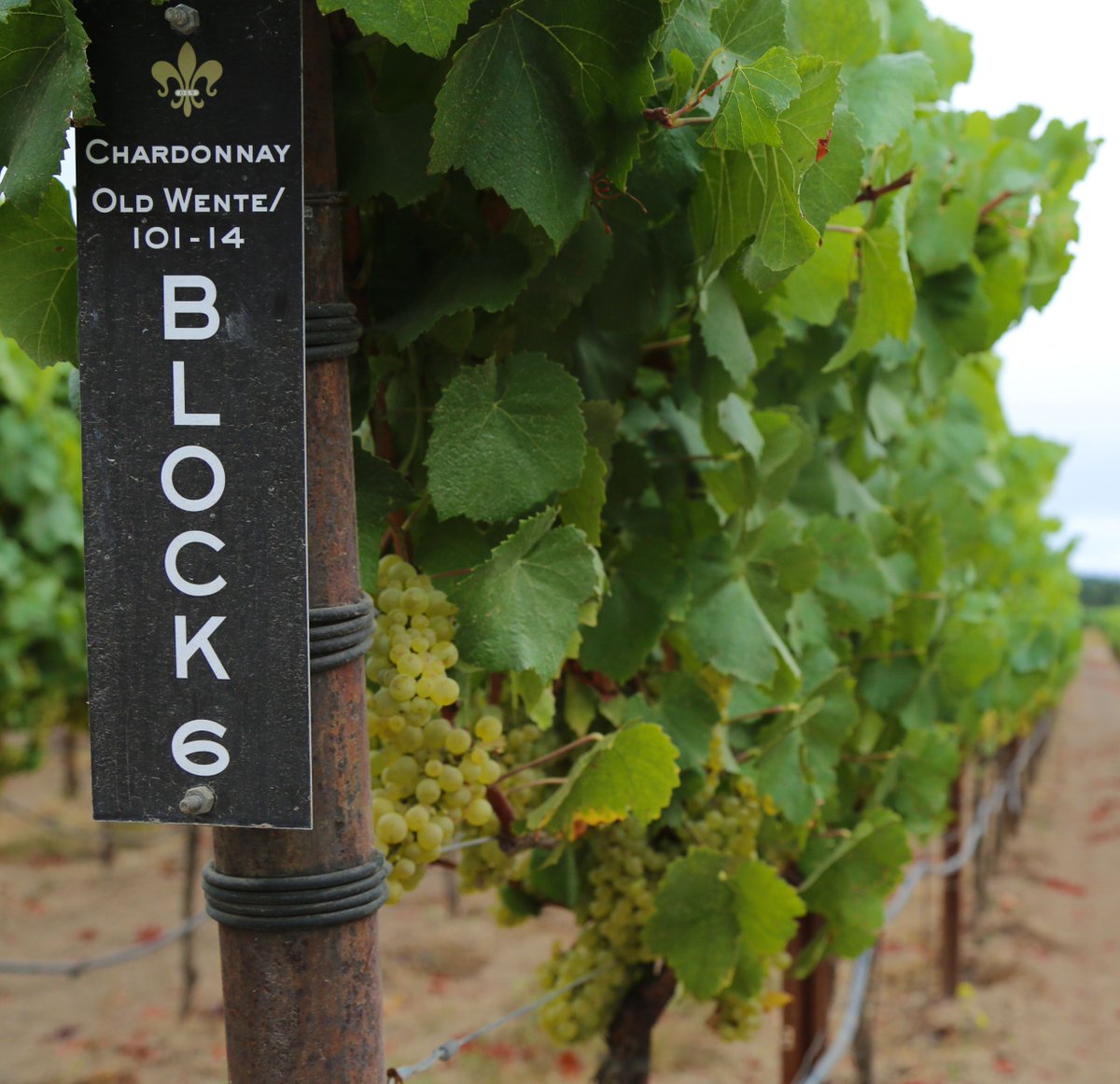 |
| Photo from DeLoach Vineyards |
In terms of soil, DeLoach has Huichica Loam. Not only are they certified organic and biodynamic, “we focus also on sustainable wine-growing.” It was a delight to know that many of us have been drinking DeLoach wines for years and did not realize that they were organic until now!
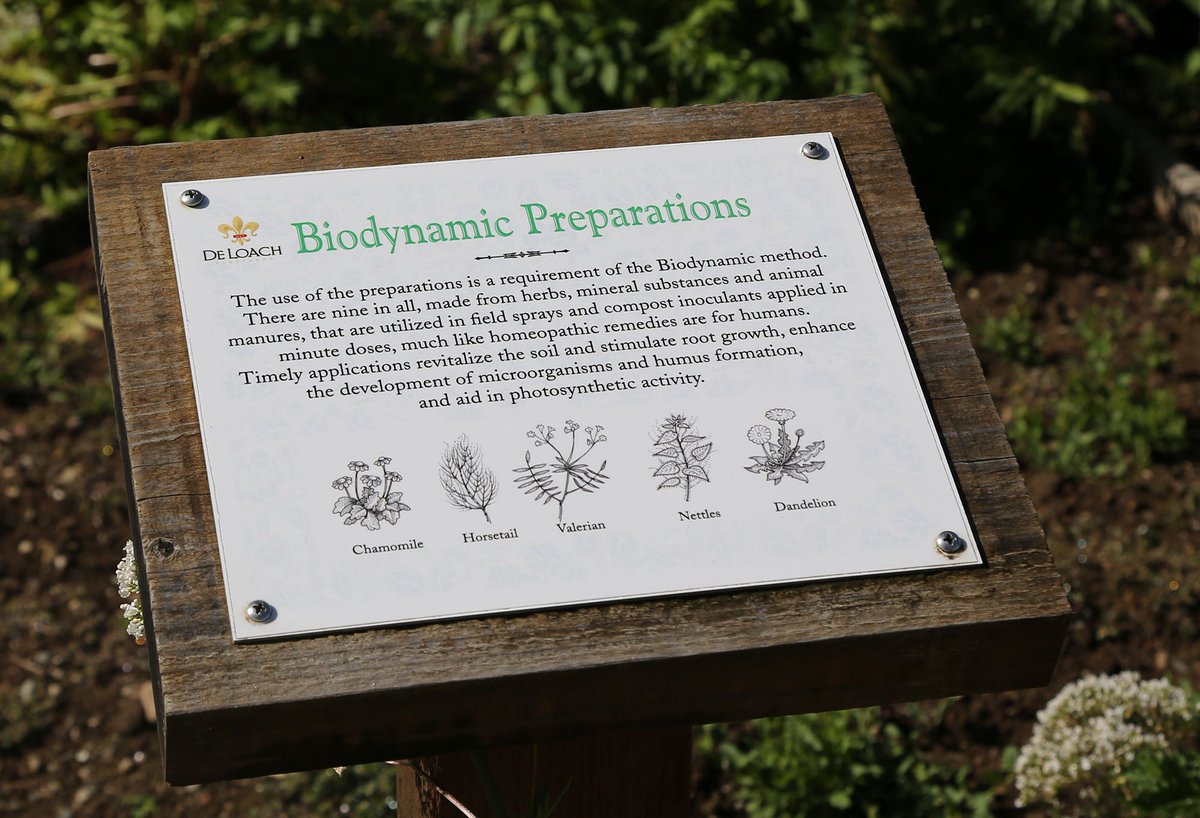 |
| Photo from DeLoach Vineyards |
#WiningHourChat’s DeLoach Vineyards Tasting:
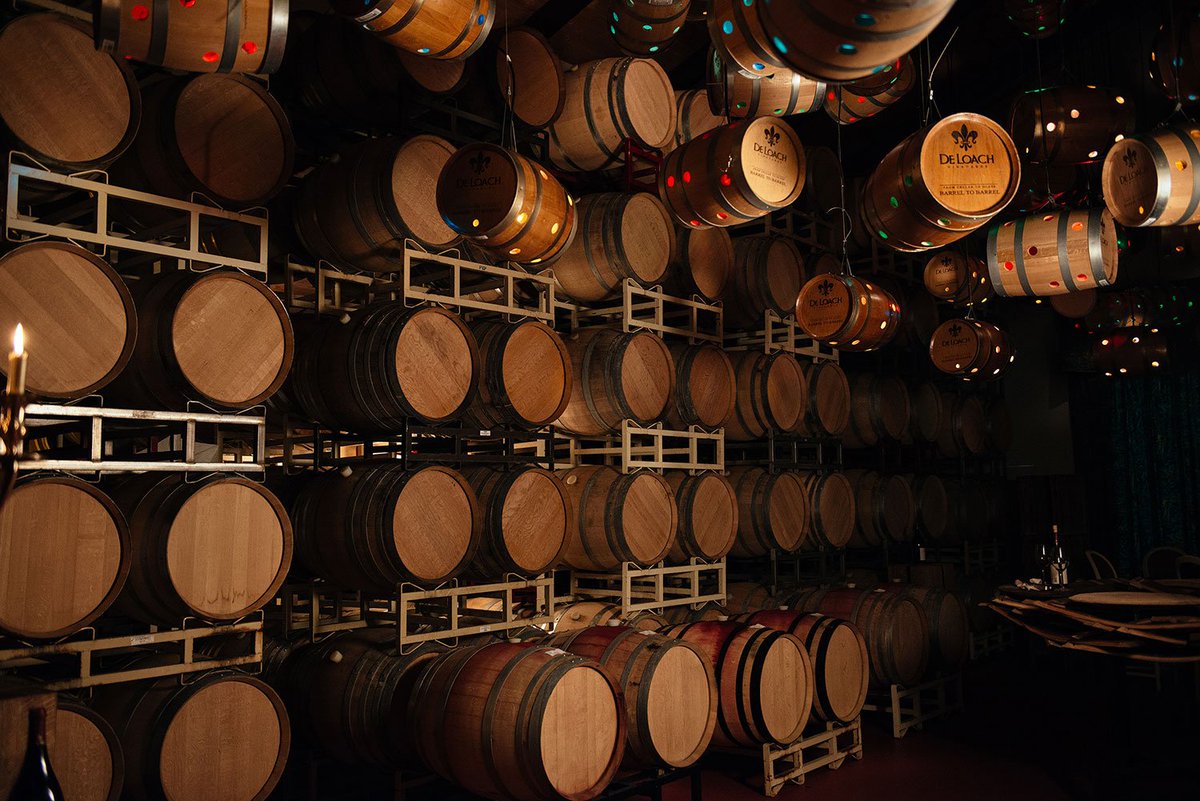 |
French oak for Chardonnay
at DeLoach Vineyard |
We tasted DeLoach Vineyard Estate Chardonnay 2014. This Chardonnay is made from grapes from their Old Wente Clone, Montrachet Clone and Clone 809 vineyard blocks. The grapes underwent whole cluster pressing, native yeast fermentation and lees stirring for 10 months. Then there was extended barrel aging in French oak (25% new) for 14 months to enhance depth and complexity. DeLoach Vineyard Estate Chardonnay is adorned in very sophisticated attire, with its beautiful gold Fleur-de-lys accenting the golden bottle. It is yellow-gold in appearance, with aromas of tropical fruit and oak. This well-balanced Chardonnay has rich pear and citrus fruit on the palate. Balanced acidity and luxuriant finish. 14.5 % ABV, and would complement vegetarian dishes, Cornish hens and most poultry dishes.
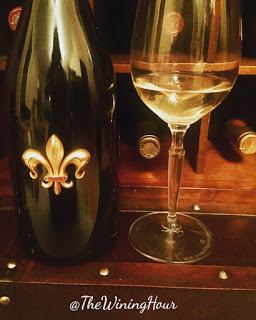
We also tasted DeLoach Vineyard Russian River Valley Pinot Noir. Who doesn’t love a good Pinot Noir? DeLoach Vineyard makes about 14 different Pinots! This one is hand-sorted and fermented in small vats. Following the hand punch-down method, it is aged for 11 months in French oak barrels.
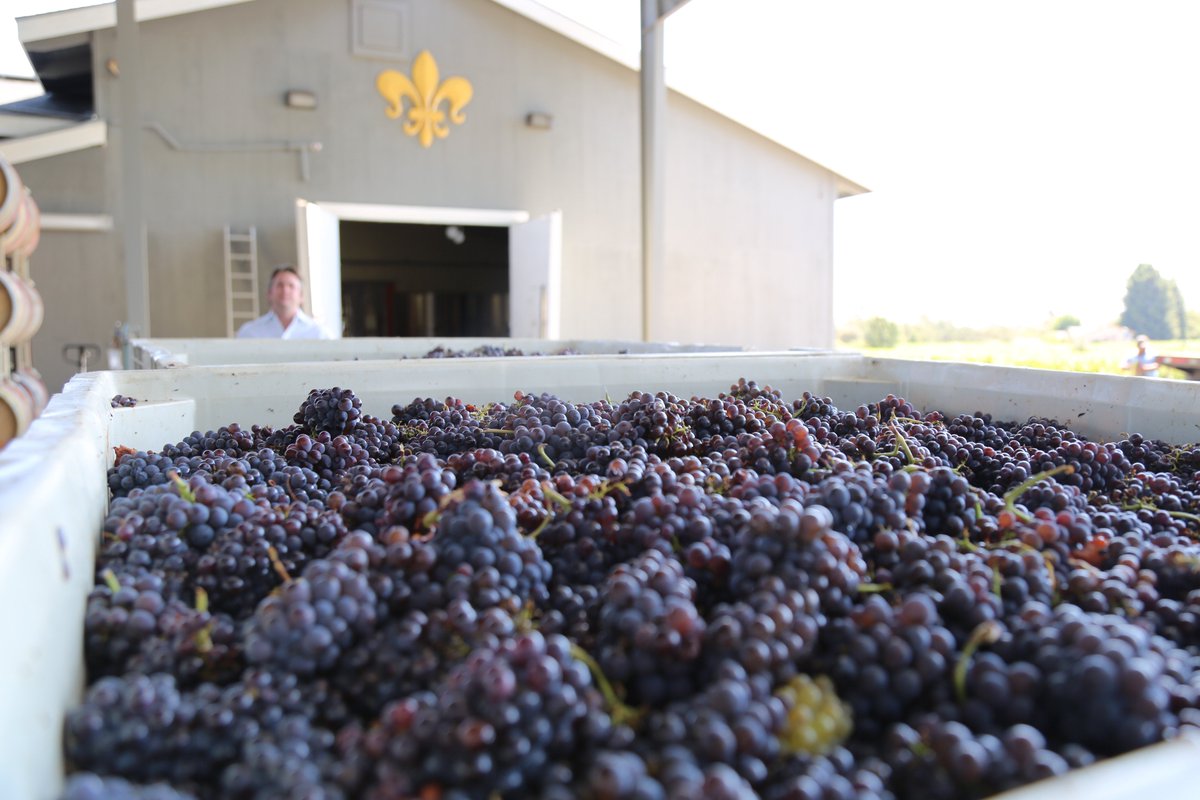 |
| Hand-sorted Pinot Noir grapes-DeLoach Vineyard |
DeLoach Vineyard Russian River Valley Pinot Noir is garnet, with ripe cherry and raspberry on the nose. The palate explodes with dark cherry, plum and violet spice. DeLoach spoke of the raspberry aromas and tastes of strawberry and a touch of vanilla. Their pairing suggestions included wood-grilled pizza. We would also pair this Pinot with duck. Maggie (@Winegal57) paired her Pinot Noir with Fourme d’Ambert, one of France’s oldest cheeses. 13.5% ABV.
So have you tasted DeLoach Pinot Noir or Chardonnay? Don’t miss out on these rich Russian River Valley wines produced by the pioneers at DeLoach Vineyards.
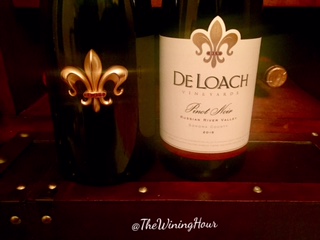
*In order to use the “organic” label, certification by an organization such as California Certified Organic Farmers or CCOF is needed. Organic farms or wineries would not use any synthetics, or any artificial fungicides, herbicides, pesticides or fertilizers. Grapes are grown organically, without the use of sulfites, even though these are naturally occurring to an extent. Biodynamic farming refers to self-sustaining, self-sufficient farming methods, or methods that are in-tuned with nature. Characteristics of biodynamic farming include the integration of plants, and livestock into the process, by means of composts, herbs, manure, etc. Anyone can incorporate biodiversity, but to have the “biodynamic” label, certification by Demeter is necessary. Lastly, sustainable or sustainably farmed focuses on three things: giving back to the environment, economic profitability and minimal use of synthetic materials. Sustainable farming methods may include organic and/or biodynamic wine-growing or wine-making techniques.
About The Wining Hour
The Wining Hour writes about wine, Italy and global travel. The Wining Hour boutique caters to wine-lovers across the globe by offering all wine-related items. The Wining Hour markets unique wine décor and furnishings, accessories, glassware, barware, wine racks, storage and cooling options, games, gifts and more. The Wining Hour also hosts #wininghourchat on Twitter (@wininghourchat) on Tuesday’s at 9 p.m. EST.(For more, see links at the top of this page)
Get Social with The Wining Hour:







